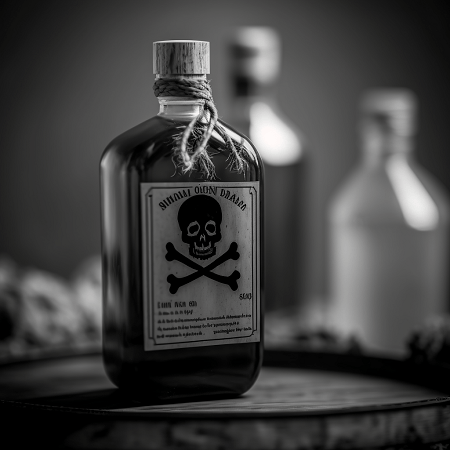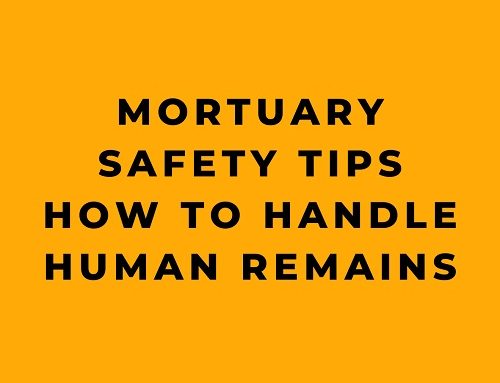Poisoning is a serious problem that affects people of all ages, but it is especially dangerous for children. Every year, thousands of children are rushed to emergency rooms after accidentally ingesting dangerous substances. As a result, it’s important to take steps to poison-proof your home and keep your loved ones safe.
The Centers for Disease Control and Prevention (CDC) reported that, in 2020 alone, 87,404 people died from preventable poisoning. Shockingly enough, the rate of death per 100k citizens was 26.5 – males faced an even higher risk with a 38.3 death rate compared to 15.1 among females! Alarmingly too, these figures have skyrocketed 32% since 2019 and are over seven times as much as they were back in 1999! Most concerningly though is the fact that drug poisonings make up 95% of all such fatalities; or what we know better today as “drug overdoses.” In addition, the Consumer Product Safety Commission states that over 90% of poisoning deaths occurred in the home.
These statistics highlight the importance of taking steps to poison-proof your home and keep your loved ones safe.
Now that we understand the gravity of the issue, it’s crucial that we take steps to prevent poisoning in our homes. By following a few simple guidelines and taking some precautions, we can greatly reduce the risk of accidental ingestion or exposure to dangerous substances. Here are 10 tips to help you poison-proof your home and keep your loved ones safe:
- Identify and remove potential hazards from your home, such as cleaning products, medications, pesticides, and other toxic substances. This is the first step in ensuring that your home is safe from potential poisoning hazards. By identifying and removing these hazards, you can greatly reduce the risk of accidental ingestion or exposure. This includes things like keeping cleaning products in locked cabinets, storing medications out of reach of children, and properly disposing of pesticides and other toxic substances.
- Keep dangerous substances in locked cabinets or out of reach of children and clearly label their contents. This is an important step in preventing accidental ingestion or exposure to dangerous substances. When dangerous substances are kept out of reach and clearly labeled, it makes it less likely that children will come into contact with them. This can include things like keeping cleaning products in locked cabinets, storing medications in a high cabinet, or using child-proof locks on drawers or cabinets where dangerous substances are stored.
- Properly dispose of expired or unused medications. This is an important step in preventing accidental ingestion or exposure to dangerous substances. Unused or expired medications can be a serious hazard, especially when they are left in reach of children. This is why it’s important to properly dispose of any expired or unused medications. This can include things like dropping them off at a designated medication drop-off location, or disposing of them in a special medication disposal bag.
- Keep the emergency contact number for the Poison Control Center handy and post it near all telephones, or in your cellphone’s contact list. This is an important step in ensuring that you can quickly and easily contact the Poison Control Center in case of emergency. The Poison Control Center can provide important information and guidance on what to do in case of accidental ingestion or exposure to dangerous substances. This can include things like keeping the emergency contact number on your phone, posting it near all telephones in your home, or programming it into your phone so it’s easily accessible.
- Always follow instructions on the label of medications and never give a child a medication that is not specifically intended for them. This is an important step in preventing accidental ingestion or exposure to dangerous substances. When medications are not used properly, it can lead to serious consequences. This is why it’s important to always follow the instructions on the label, and to never give a child a medication that is not specifically intended for them. This can include things like reading the label carefully, only taking the recommended dosage, and avoiding taking medications that have expired.
- Be mindful of the products you use in your home, such as cleaning products, pesticides, and personal care products, use them only in well-ventilated areas. This is an important step in preventing accidental ingestion or exposure to dangerous substances. Many of these products can be harmful if ingested, inhaled, or absorbed through the skin. By using them only in well-ventilated areas, you can greatly reduce the risk of accidental exposure. This can include things like using cleaning products only in well-ventilated areas, using pesticides only as directed, and using personal care products only as directed.
- Be aware of plants in your home and garden, some can be toxic if ingested, so it’s important to know which plants are safe and which are not. This is an important step in preventing accidental ingestion or exposure to dangerous substances. Many plants can be toxic if ingested, so it’s important to know which plants are safe and which are not. This can include things like avoiding having toxic plants in your home or yard, or keeping a list of safe plants in your home or yard.
- Educate yourself and your children about the dangers of poisoning, teach them about the importance of not touching or ingesting unknown substances, and always to ask an adult for help. This is an important step in preventing accidental ingestion or exposure to dangerous substances. By educating yourself and your children about the dangers of poisoning, you can make sure that they understand the importance of not touching or ingesting unknown substances. This can include things like teaching children about the importance of asking an adult for help if they find something they’re not sure about, or teaching them about the potential dangers of certain substances.
- Teach children about the importance of calling for help if they or someone they know has been poisoned. This is an important step in preventing serious consequences from accidental ingestion or exposure to dangerous substances. By teaching children about the importance of calling for help, you can make sure that they know what to do in case of emergency. This can include things like teaching children how to call for help, or teaching them about the importance of staying calm in case of emergency.
- Regularly check for any new or updated safety recommendations or information provided by health organizations, government agencies or related experts. This is an important step in staying informed about the latest safety recommendations and information related to poisoning prevention. By regularly checking for new information, you can make sure that you’re taking all the necessary steps to keep your home safe. This can include things like checking the websites of health organizations or government agencies, or subscribing to newsletters or alerts from experts in the field.
Poisoning is a serious problem that affects people of all ages, but it is especially dangerous for children. By taking steps to poison-proof your home and educate yourself and your children about the dangers of poisoning, you can greatly reduce the risk of accidental ingestion or exposure to dangerous substances. Some of the key steps to take include identifying and removing potential hazards, keeping dangerous substances out of reach and clearly labeled, properly disposing of expired or unused medications, keeping the emergency contact number for the Poison Control Center handy, following instructions on the label of medications, being mindful of the products you use in your home, being aware of plants in your home and garden, educating yourself and your children about the dangers of poisoning, teaching children about the importance of calling for help if they or someone they know has been poisoned and regularly checking for new or updated safety recommendations or information. Remember, prevention is key, and by taking these steps, you can help keep your loved ones safe.










